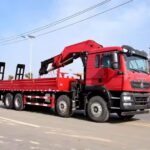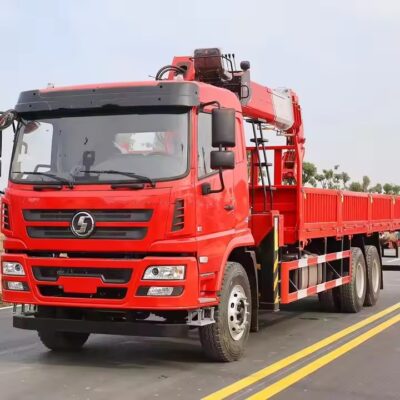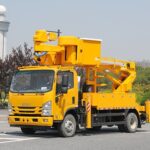In a significant development for the safety and efficiency of Brazil‘s electrical infrastructure maintenance, CSCTRUCK Tow Crane Truck has introduced its latest line of insulated bucket trucks. These state-of-the-art vehicles are set to revolutionize the way electrical workers perform their duties, providing unparalleled safety features and operational capabilities that meet the unique demands of Brazil‘s diverse and challenging electrical grid.
Advanced Safety Features
The CSCTRUCK Tow Crane Truck insulated bucket trucks are designed with an emphasis on worker safety. These vehicles are equipped with high-grade insulation that protects workers from electrical shocks, even when operating in high-voltage environments. The insulated booms, which are a critical component of these trucks, undergo rigorous testing to ensure they can withstand electrical exposure, thereby minimizing the risk of accidents.
Moreover, the insulated bucket trucks feature enhanced stability controls and automatic leveling systems, which ensure that the platform remains steady even on uneven terrain. This is particularly crucial for Brazil, where electrical workers often have to navigate a variety of landscapes, from urban settings to remote rural areas.

Operational Efficiency and Versatility
Beyond safety, the new CSCTRUCK Tow Crane Truck models are designed for operational efficiency. The trucks boast powerful engines and hydraulic systems that enable swift and precise positioning of the bucket, reducing the time workers spend in potentially hazardous conditions. The ergonomic design of the buckets also provides greater comfort for workers, allowing them to focus on their tasks without physical strain.
These vehicles are versatile and can be used for a wide range of electrical maintenance tasks, including installation, repair, and routine inspections. This versatility is especially beneficial in Brazil, where the electrical grid spans vast distances and diverse environments. The trucks’ ability to operate efficiently in both densely populated cities and remote areas ensures that electrical services can be maintained and improved across the country.
Impact on Brazil’s Electrical Industry
The introduction of CSCTRUCK Tow Crane Truck insulated bucket trucks is expected to have a profound impact on Brazil‘s electrical industry. By enhancing the safety and efficiency of electrical maintenance work, these vehicles will contribute to more reliable electrical services. This is critical in a country that is experiencing rapid urbanization and increased demand for electricity.
Furthermore, the improved safety features are likely to reduce the incidence of workplace accidents, which have historically been a concern in the electrical industry. This not only benefits the workers directly but also has positive implications for the industry’s overall productivity and cost-effectiveness.

Testimonials from the Field
Initial feedback from Brazilian electrical companies using the CSCTRUCK Tow Crane Truck insulated bucket trucks has been overwhelmingly positive. Workers have reported feeling significantly safer and more confident when performing their duties, thanks to the advanced safety features of the trucks. Managers have noted improved efficiency and fewer disruptions due to accidents or equipment failures.
One senior engineer at a leading electrical utility company remarked, “The CSCTRUCK Tow Crane Truck insulated bucket trucks have transformed our operations. Our teams can work faster and safer, which ultimately means better service for our customers. This is a game-changer for us.”
Conclusion
As Brazil continues to modernize its electrical infrastructure, the role of innovative solutions like the CSCTRUCK Tow Crane Truck insulated bucket trucks becomes increasingly important. These vehicles not only enhance the safety and efficiency of electrical workers but also contribute to the reliability and resilience of the country’s electrical grid. With their introduction, CSCTRUCK Tow Crane Truck is setting a new standard in the industry, one that prioritizes the well-being of workers and the quality of electrical services provided to the community.









